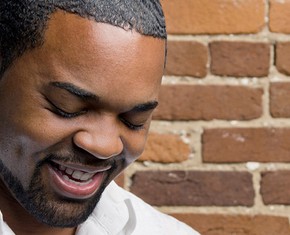The views expressed in our content reflect individual perspectives and do not represent the authoritative views of the Baha'i Faith.
Have you ever heard the word “dross?” Related to the word “gross,” it means refuse and rubbish – or the scum of impurities that floats to the top of molten metal:
Not until man is tried doth the pure gold distinctly separate from the dross. – Abdu’l-Baha, Selections from the Writings of Abdu’l-Baha, p. 120.
In the Baha’i writings the word occurs frequently in conjunction with the symbol of a “mirror covered in dross,” which doesn’t reflect light completely or even at all:
These energies with which the Day Star of Divine bounty and Source of heavenly guidance hath endowed the reality of man lie, however, latent within him, even as the flame is hidden within the candle and the rays of light are potentially present in the lamp. The radiance of these energies may be obscured by worldly desires even as the light of the sun can be concealed beneath the dust and dross which cover the mirror. – Baha’u’llah, Gleanings from the Writings of Baha’u’llah, pp. 65-66.
Neither a candle nor a lamp can light themselves, and a fire needs to be kindled. Likewise, the mirror, in this analogy from Baha’u’llah, cannot clean itself. In this passage, the Baha’i teachings present the mirror, the candle and the lamp as symbols for the “reality of man,” containing “latent” powers that require aid and assistance to reveal their true potential – the radiant energies we all inherently possess.
Education and its resultant knowledge can help reveal those radiant energies. So can the active pursuit of inner self-improvement. The Baha’i teachings say the best way to educate and improve oneself is to turn to the Word of God for inspiration and guidance. That’s exactly why the heavenly holy books and scriptures were revealed, in whatever age, of whichever faith.
Every one of those great Faiths has brought us the same essential message – that this material world is fleeting, so we all need to find a more lasting love:
The world will pass away, and so will all the things whereat your hearts rejoice, or wherein ye pride yourselves before men. Cleanse the mirrors of your hearts from the dross of the world and all that is therein, that they may reflect the resplendent light of God. This, indeed, shall enable you to dispense with all save God, and to attain unto the good pleasure of your Lord, the Most Bountiful, the All-Knowing, the All-Wise. – Baha’u’llah, The Summons of the Lord of Hosts, p.
What is “the dross of the world?” Part of it is our “worldly desires,” whether for wealth, fame, unmitigated self-gratification, power, etc. The Universal House of Justice has described it as human error:
The Teachings of Baha’u’llah throw light on so many aspects of human life and knowledge that a Baha’i must learn, earlier than most, to weigh the information that is given to him rather than to accept it blindly. A Baha’i has the advantage of the divine Revelation for this Age, which shines like a searchlight on so many problems that baffle modern thinkers; he must therefore develop the ability to learn everything from those around him, showing proper humility before his teachers, but always relating what he hears to the Baha’i teachings, for they will enable him to sort out the gold from the dross of human error. – The Universal House of Justice, 10 June 1966, To the Bahai Youth in Every Land.
Worldly desires and human error drag down the progress of an ideal civilization, primarily because too many people consider material civilization as the apex and sole goal of human endeavor on this planet. They look for political, technological or material solutions to our problems, to the exclusion of religion and spirituality. We see these failures in the news everywhere, every minute of every day. Millions of people continue to be homeless and stateless, suffering from a myriad ills. Individual and collective spirituality, and unity, the life of the soul of humankind, seems unattainable.
Abdu’l-Baha put this dichotomy this way:
… the advancement of civilization, material perfections and human virtues will bear no fruit or result unless joined to the spiritual perfections; merciful qualities and sound morals, and the happiness of the human world, which is the original goal, will not be attained. For although through the advancement of civilization and the adornment and refinement of the material world, happiness is realized, and the sight of hopes fulfilled in perfect beauty wins the heart, yet, concomitantly, great dangers, severe ordeals and awful catastrophes are involved. – Abdu’l-Baha, Star of the West, Volume 4, p. 65.
This affirms the foundational problem facing humanity, and asks a simple question: Do I turn towards God or away from Him?
















Comments
Sign in or create an account
Continue with Googleor